LECTURERS
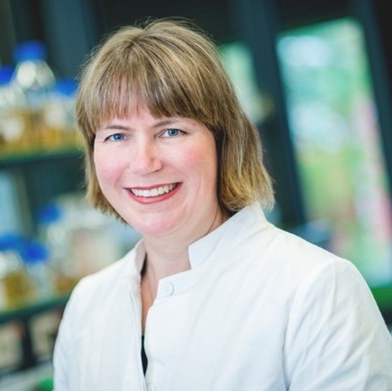
Julia Bandow is a full professor of Applied Microbiology at Ruhr University Bochum/Germany. She received a PhD in Microbiology from Ernst-Moritz-Arndt University of Greifswald/Germany in 2002 and then joined Pfizer Global Research and Development, Ann Arbor Michigan/USA, where she utilized proteomic methods to identify drug mechanisms of actions and biomarkers of disease and drug efficacy. In 2008 after six years in industry, she joined RUB to pursue an academic career. Bandow’s research interests focus on antibacterial strategies. In 2014 she was honored with the Research Award of the German Microbiology Society (VAAM) for her contributions to antibiotic research. Her current projects include the search for novel antibiotics on the basis of natural products and metalloantibiotics as well as applications of non-equilibrium plasma in microbiology and biotechnology. In particular, Bandow is interested in the effects of plasma treatment on bacteria and proteins, and in the bacterial defense mechanisms.
Tentative title: Plasmas in pharmaceutical applications, biochemistry and biomolecular engineering
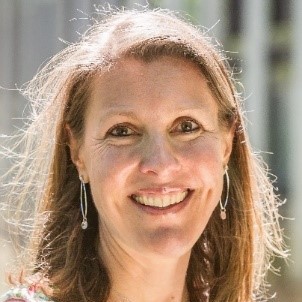 Annemie Bogaerts obtained her M.Sc. in Chemistry in 1993, and her PhD in Sciences in 1996. She became professor in physical chemistry at UA in 2003 and full professor since 2012. She founded the research group PLASMANT (Plasma Lab for Applications in Sustainability and Medicine – ANTwerp), out of her own PhD research, and was able to attract significant funding. Now, her groups counts ca. 50 researchers, and is quite interdisciplinary, composed of chemists, physicists, engineers, biologists and biomedical researchers. Her research focuses on plasma chemistry, plasma reactor design and plasma-surface interactions (incl. solid catalysts, liquids and biomolecules), by computer modelling and experiments, mainly for applications in green chemistry and medicine. She is also co-inventor of over 10 patent applications since 2019, and co-founder of 2 spin-off companies of her research group. She is Editorial Board Member of 15 journals, and is/was Guest Editor for 23 special issues. She organized several conferences, and was Member of the Board of Directors of the International Plasma Chemistry Society (IPCS) since 2014, Vice-President (2020-2022), and President of IPCS (2022-2023). She received several scientific awards, including in recent years: the European Physical Society Plasma Innovation Award (2023) for her research on plasma-based CO2 conversion and the creation of a spinoff (with G. Trenchev), the Plasma Medicine Award (2022) (for lifetime achievements), and in 2022 she was also selected as one of the 30 “Europe’s most recognized chemistry professors, to recreate the iconic 1927 Solvay picture, and to help shape the future of chemical innovation in Europe”.
Annemie Bogaerts obtained her M.Sc. in Chemistry in 1993, and her PhD in Sciences in 1996. She became professor in physical chemistry at UA in 2003 and full professor since 2012. She founded the research group PLASMANT (Plasma Lab for Applications in Sustainability and Medicine – ANTwerp), out of her own PhD research, and was able to attract significant funding. Now, her groups counts ca. 50 researchers, and is quite interdisciplinary, composed of chemists, physicists, engineers, biologists and biomedical researchers. Her research focuses on plasma chemistry, plasma reactor design and plasma-surface interactions (incl. solid catalysts, liquids and biomolecules), by computer modelling and experiments, mainly for applications in green chemistry and medicine. She is also co-inventor of over 10 patent applications since 2019, and co-founder of 2 spin-off companies of her research group. She is Editorial Board Member of 15 journals, and is/was Guest Editor for 23 special issues. She organized several conferences, and was Member of the Board of Directors of the International Plasma Chemistry Society (IPCS) since 2014, Vice-President (2020-2022), and President of IPCS (2022-2023). She received several scientific awards, including in recent years: the European Physical Society Plasma Innovation Award (2023) for her research on plasma-based CO2 conversion and the creation of a spinoff (with G. Trenchev), the Plasma Medicine Award (2022) (for lifetime achievements), and in 2022 she was also selected as one of the 30 “Europe’s most recognized chemistry professors, to recreate the iconic 1927 Solvay picture, and to help shape the future of chemical innovation in Europe”.
Tentative title: Modelling for a better understanding of plasma medicine
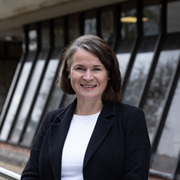 Paula Bourke is a Professor in the UCD School of Biosystems and Food Engineering, a Conway Institute Research Fellow and a member of the UCD Institute of Food and Health. She graduated from the University of limerick in 2001 with a PhD in microbiological safety of novel non thermal processing technologies. During her time as a post-doctoral researcher at University of Limerick and as an Arnold Graves Research Fellow at DIT, she researched both thermal and non-thermal processing and their interactions with food borne pathogens and resistance mechanisms. Her research is primarily in the areas of sustainable processing innovations and novel antimicrobial technologies. She has a strong interest and research cross over to bio-medically relevant issues including infection prevention and control and Biofilms. She collaborates widely and has been successful in gaining funding awards at a national and international level. Her research group works on a range of cold plasma bioscience and sustainable food processing projects. Current research is supported through SFI Investigator, SFI-UKRI/BBSRC and SFI US-Ireland Tripartite awards, Department of Agriculture Food and Marine FIRM, Irish Research Council, the Royal Irish Academy as well as Enterprise Ireland awards. She was designated as a Highly Cited Researcher by Clarivate Web of Science based on her rankings within the top 1% highly cited researchers. She is a member of the recently initiated EU COST network in Plasma Applications for smart and sustainable agriculture, and the COST network in device associated infection iPROMEDAI.
Paula Bourke is a Professor in the UCD School of Biosystems and Food Engineering, a Conway Institute Research Fellow and a member of the UCD Institute of Food and Health. She graduated from the University of limerick in 2001 with a PhD in microbiological safety of novel non thermal processing technologies. During her time as a post-doctoral researcher at University of Limerick and as an Arnold Graves Research Fellow at DIT, she researched both thermal and non-thermal processing and their interactions with food borne pathogens and resistance mechanisms. Her research is primarily in the areas of sustainable processing innovations and novel antimicrobial technologies. She has a strong interest and research cross over to bio-medically relevant issues including infection prevention and control and Biofilms. She collaborates widely and has been successful in gaining funding awards at a national and international level. Her research group works on a range of cold plasma bioscience and sustainable food processing projects. Current research is supported through SFI Investigator, SFI-UKRI/BBSRC and SFI US-Ireland Tripartite awards, Department of Agriculture Food and Marine FIRM, Irish Research Council, the Royal Irish Academy as well as Enterprise Ireland awards. She was designated as a Highly Cited Researcher by Clarivate Web of Science based on her rankings within the top 1% highly cited researchers. She is a member of the recently initiated EU COST network in Plasma Applications for smart and sustainable agriculture, and the COST network in device associated infection iPROMEDAI.
Tentative title: Plasma interactions with surfaces and biological materials
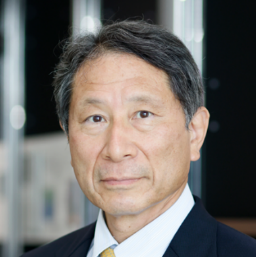 Masaru Hori received his B.E and M.E. degrees from Waseda University, Tokyo, Japan in 1981 and 1983, respectively, and his D.E. degree from Nagoya University, Nagoya, Japan in 1986. He was a researcher with Toshiba Corporation from 1986 to 1992. He was a Research Associate, an Assistant Professor, and then an Associate Professor from 1992 to 2004 with Nagoya University. From 2004 to 2023, he has been a Professor with Nagoya University. From 2019 to 2023, he has been the Director of Center for Low-temperature Plasma Sciences with Nagoya University. From 2023 he is Specially Appointed Professor at the Centre and Professor Emeritus at Nagoya University. His current research interests include low-temperature plasma sciences and their applications to device/material, environment/energy and medicine/agriculture fields.
Masaru Hori received his B.E and M.E. degrees from Waseda University, Tokyo, Japan in 1981 and 1983, respectively, and his D.E. degree from Nagoya University, Nagoya, Japan in 1986. He was a researcher with Toshiba Corporation from 1986 to 1992. He was a Research Associate, an Assistant Professor, and then an Associate Professor from 1992 to 2004 with Nagoya University. From 2004 to 2023, he has been a Professor with Nagoya University. From 2019 to 2023, he has been the Director of Center for Low-temperature Plasma Sciences with Nagoya University. From 2023 he is Specially Appointed Professor at the Centre and Professor Emeritus at Nagoya University. His current research interests include low-temperature plasma sciences and their applications to device/material, environment/energy and medicine/agriculture fields.
Tentative title: Use of plasma-activated solutions for a future medicine
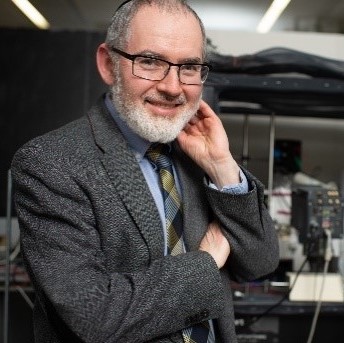 Michael Keidar is A. James Clark Professor of Engineering at the George Washington University. His research concerns plasma physics and engineering with application in advanced spacecraft propulsion, plasma medicine and plasma-based nanotechnology. He has authored over 340 journal articles, 330 conference papers, author of textbook “Plasma Engineering” and book “Plasma Cancer Therapy”. He received 2017 Davidson award in plasma physics. In 2016 he received AIAA Engineer of the Year award for his work on micropropulsion resulted in successful launch of nanosatellite with thrusters developed by his laboratory. He received the Plasma Medicine Award in 2021. Prof. Keidar serves as an Editor in Chief of Journal of Electric Propulsion, Associate Editor of AIP Advances and IEEE Transactions in Radiation and Plasma Medical Sciences. He is elected Fellow of National Academy of Investors, Fellow of American Physical Society and Fellow of American Institute of Astronautics and Aeronautics. He is elected President of the Electric Rocket Propulsion Society.
Michael Keidar is A. James Clark Professor of Engineering at the George Washington University. His research concerns plasma physics and engineering with application in advanced spacecraft propulsion, plasma medicine and plasma-based nanotechnology. He has authored over 340 journal articles, 330 conference papers, author of textbook “Plasma Engineering” and book “Plasma Cancer Therapy”. He received 2017 Davidson award in plasma physics. In 2016 he received AIAA Engineer of the Year award for his work on micropropulsion resulted in successful launch of nanosatellite with thrusters developed by his laboratory. He received the Plasma Medicine Award in 2021. Prof. Keidar serves as an Editor in Chief of Journal of Electric Propulsion, Associate Editor of AIP Advances and IEEE Transactions in Radiation and Plasma Medical Sciences. He is elected Fellow of National Academy of Investors, Fellow of American Physical Society and Fellow of American Institute of Astronautics and Aeronautics. He is elected President of the Electric Rocket Propulsion Society.
Tentative title: Recent advances in cancer therapy based on plasma
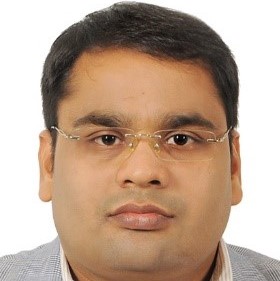 Nagendra Kaushik has been working at the Department of Electrical and Biological Physics & Plasma Bioscience Research Center at Kwangwoon University in Seoul, South Korea since 2011. He has been awarded an Honorary Professorship at MSB University in India. His research work is primarily focused on plasma bioscience, environment, nanobiotechnology, and biomaterials. He has published more than 200 publications, including many in top-ranked journals, and has applied for several patents. Prof. Nagendra is serving as the editor of several journals including Scientific Reports, IEEE journals, Plos One, Frontiers journals, and many others. He has been listed in the World’s Top 2% Scientists by Stanford University and Elsevier continuously since 2020. He was also honored with the Early Career Award in Plasma Medicine (ECAPM) by ISPM in 2020.
Nagendra Kaushik has been working at the Department of Electrical and Biological Physics & Plasma Bioscience Research Center at Kwangwoon University in Seoul, South Korea since 2011. He has been awarded an Honorary Professorship at MSB University in India. His research work is primarily focused on plasma bioscience, environment, nanobiotechnology, and biomaterials. He has published more than 200 publications, including many in top-ranked journals, and has applied for several patents. Prof. Nagendra is serving as the editor of several journals including Scientific Reports, IEEE journals, Plos One, Frontiers journals, and many others. He has been listed in the World’s Top 2% Scientists by Stanford University and Elsevier continuously since 2020. He was also honored with the Early Career Award in Plasma Medicine (ECAPM) by ISPM in 2020.
Tentative title: Plasma activated liquids for cancer and microbial inactivation
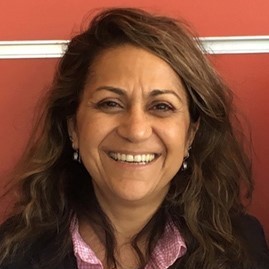 Vandana Miller is a Professor in the Center for Molecular Virology and Gene Therapy, Institute for Molecular Medicine and Infectious Disease, and Department of Microbiology and Immunology, Drexel University College of Medicine, Philadelphia, Pennsylvania, United States of America. Her education and training have given her a well-rounded perspective of both clinical and laboratory investigation of immune responses in diseases. Since 2013, when she
Vandana Miller is a Professor in the Center for Molecular Virology and Gene Therapy, Institute for Molecular Medicine and Infectious Disease, and Department of Microbiology and Immunology, Drexel University College of Medicine, Philadelphia, Pennsylvania, United States of America. Her education and training have given her a well-rounded perspective of both clinical and laboratory investigation of immune responses in diseases. Since 2013, when she
joined the field of plasma medicine, she has been investigating how cold plasmas engage the immune system when used for the treatment of different diseases. She collaborates with researchers worldwide and has over 50 publications describing various aspects of plasma medicine. One of her projects funded by the US National Institutes of Health focuses on the mechanism of wound healing by plasma. A US Department of Energy funded project investigates the reciprocal interactions between plasma and tissue. A translational grant is exploring the treatment of Herpes cold sores.
Tentative Title: Non-thermal plasma for treatment of viral diseases
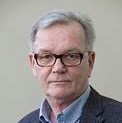 Gregor Serša, graduated from the Biotechnical Faculty at the University of Ljubljana in 1978, where he is currently a professor of molecular biology. He is employed at the Institute of Oncology Ljubljana as Deputy Head of the Department of Experimental Oncology. His specific field of interest is the effect of electric field on tumor cells and tumors as drug and gene delivery system in different therapeutic approaches. Besides experimental work, he is actively involved in the education of undergraduate and postgraduate students at the University of Ljubljana. Also, he is Editor in Chief of the
Gregor Serša, graduated from the Biotechnical Faculty at the University of Ljubljana in 1978, where he is currently a professor of molecular biology. He is employed at the Institute of Oncology Ljubljana as Deputy Head of the Department of Experimental Oncology. His specific field of interest is the effect of electric field on tumor cells and tumors as drug and gene delivery system in different therapeutic approaches. Besides experimental work, he is actively involved in the education of undergraduate and postgraduate students at the University of Ljubljana. Also, he is Editor in Chief of the
international scientific journal Radiology and Oncology.
Tentative title: Biomedical application of electroporation
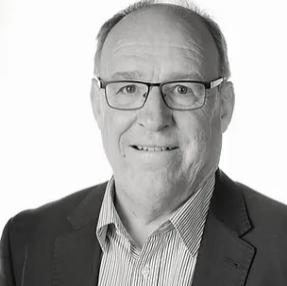 Rob Short studied Chemistry (BSc) and Physical Chemistry (PhD) at the University of Durham (UK) and joined the School of Materials at the University of Sheffield in 1988, where he held the Chair of Material and Biomaterial Chemistry from 2001. During this period, Rob helped develop a materials-cell technology (myskinTM) for treating severe burns and scalds; adopted in the UK by the NHS, this technology was used over a decade in all the UK’s major burns centres. Rob also established Plasso Technology, an advanced materials for life science research company. Plasso developed technology that now underpins a range of products (PureCoatTM) sold globally for cell culture and cell therapy. In 2013, Rob was elected to the Australian Academy of Technological Sciences and Engineering. He is a fellow of the Royal Society of Chemistry and Institute of Materials, Minerals and Mining. Rob rejoined the University of Sheffield in October 2022.
Rob Short studied Chemistry (BSc) and Physical Chemistry (PhD) at the University of Durham (UK) and joined the School of Materials at the University of Sheffield in 1988, where he held the Chair of Material and Biomaterial Chemistry from 2001. During this period, Rob helped develop a materials-cell technology (myskinTM) for treating severe burns and scalds; adopted in the UK by the NHS, this technology was used over a decade in all the UK’s major burns centres. Rob also established Plasso Technology, an advanced materials for life science research company. Plasso developed technology that now underpins a range of products (PureCoatTM) sold globally for cell culture and cell therapy. In 2013, Rob was elected to the Australian Academy of Technological Sciences and Engineering. He is a fellow of the Royal Society of Chemistry and Institute of Materials, Minerals and Mining. Rob rejoined the University of Sheffield in October 2022.
Tentative title: Plasma for dermatology – CAP in wound healing and CAP combined with hydrogels
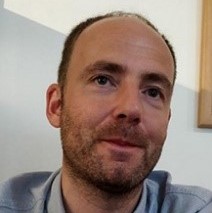 James L. Walsh joined the York Plasma Institute in 2022 as a Chair of low temperature plasma science, prior to this he was a Professor in the Technological Plasmas group at the University of Liverpool, where he was school research lead and faculty theme lead for Healthcare Technologies. In 2016, Professor Walsh received a prestigious EPSRC Healthcare Technologies Challenge Award enabling him to establish the cross disciplinary Centre for Plasma Microbiology. He has received over £4 million in research income as principal investigator from diverse funders, including the UKRI, EU and industry. Supported by a diverse and highly multidisciplinary team he has produced 100+ articles in leading international journals, spanning the fields of fundamental plasma science right through to applied microbiology.
James L. Walsh joined the York Plasma Institute in 2022 as a Chair of low temperature plasma science, prior to this he was a Professor in the Technological Plasmas group at the University of Liverpool, where he was school research lead and faculty theme lead for Healthcare Technologies. In 2016, Professor Walsh received a prestigious EPSRC Healthcare Technologies Challenge Award enabling him to establish the cross disciplinary Centre for Plasma Microbiology. He has received over £4 million in research income as principal investigator from diverse funders, including the UKRI, EU and industry. Supported by a diverse and highly multidisciplinary team he has produced 100+ articles in leading international journals, spanning the fields of fundamental plasma science right through to applied microbiology.
Tentative title: Plasma sources and diagnostics
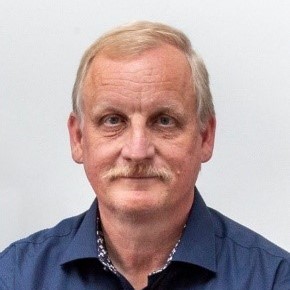 Thomas von Woedtke studied Pharmacy at Greifswald University, Germany. He received the Doctoral Degree in 1995 in Pharmaceutical Technology, followed by the Habilitation degree in 2007. 2008-2023 he was Research Program Manager Plasma Medicine at the Leibniz Institute for Plasma Science and Technology (INP) Greifswald, Germany. Since 2020 he is Member of the Board of INP and responsible for the Research Department Health & Hygiene. He holds a professorship for Plasma Medicine at Greifswald University Medicine since 2011.
Thomas von Woedtke studied Pharmacy at Greifswald University, Germany. He received the Doctoral Degree in 1995 in Pharmaceutical Technology, followed by the Habilitation degree in 2007. 2008-2023 he was Research Program Manager Plasma Medicine at the Leibniz Institute for Plasma Science and Technology (INP) Greifswald, Germany. Since 2020 he is Member of the Board of INP and responsible for the Research Department Health & Hygiene. He holds a professorship for Plasma Medicine at Greifswald University Medicine since 2011.
Tentative title: Plasma therapies – State of implementation of cold atmospheric plasma in treatment concepts
